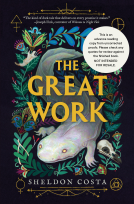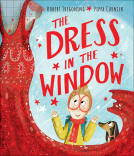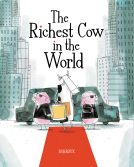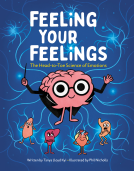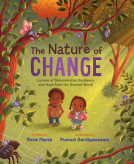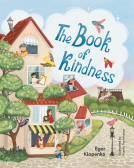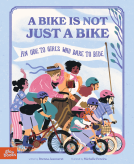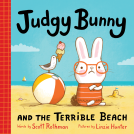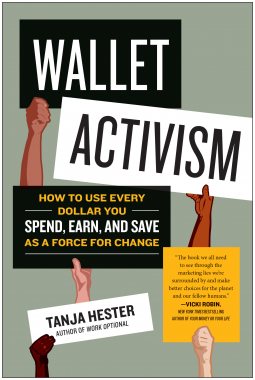
Wallet Activism
How to Use Every Dollar You Spend, Earn, and Save as a Force for Change
by Tanja Hester
This title was previously available on NetGalley and is now archived.
Send NetGalley books directly to your Kindle or Kindle app
1
To read on a Kindle or Kindle app, please add kindle@netgalley.com as an approved email address to receive files in your Amazon account. Click here for step-by-step instructions.
2
Also find your Kindle email address within your Amazon account, and enter it here.
Pub Date Nov 16 2021 | Archive Date Sep 09 2022
Talking about this book? Use #WalletActivism #NetGalley. More hashtag tips!
Description
How do we vote with our dollars, not just to make ourselves feel good, but to make a real difference?
Wallet Activism challenges you to rethink your financial power so can feel confident spending, earning, and saving money in ways that align with your values.
While we call the American system a democracy, capitalism is the far more powerful force in our lives. The greatest power we have—especially when political leaders won’t move quickly enough—is how we use our money: where we shop, what we buy, where we live, what institutions we entrust with our money, who we work for, and where we donate determines the trajectory of our society and our planet. While our votes and voices are essential, too, Wallet Activism helps you use your money for real impact.
It can feel overwhelming to determine “the right way” to spend: a choice that might seem beneficial to the environment may have unintended consequences that hurt people. And marketers are constantly lying to you, making it hard to know what choice is best. Wallet Activism empowers us to vote with our wallets by making sense of all the information coming at us, and teaching us to cultivate a more holistic mindset that considers the complex, interrelated ecosystems of people and the planet together, not as opposing forces.
From Tanja Hester, Our Next Life blogger and author of Work Optional, comes the mindset-shifting guide to help you put your money where your values are. Wallet Activism is not a list of dos and don’ts that will soon become outdated, nor does it call for anti-consumerist perfection.
Instead, it goes beyond simple purchasing decisions to explore:
- The impacts a financial decision can have across society and the environment
- How to create a personal spending philosophy based on your values
- Practical questions to quickly assess the “goodness” of a product or an entity you may buy from
- The ethics of earning money, choosing what foods to eat, employing others, investing responsibly, choosing where to live, and giving money away
Available Editions
| EDITION | Other Format |
| ISBN | 9781953295590 |
| PRICE | $17.95 (USD) |
| PAGES | 350 |
Average rating from 11 members
Featured Reviews
There’s no way around it: the information in this book is incredibly depressing and overwhelming. It’s also thoroughly researched, well-organized, and actionable. Complex topics are broken down and explained clearly and accessibly.
There’s no doubt this is a very dense book and I recommend consuming it elephant-style—one bite at a time. That said, it’s very worth reading to be an aware, informed consumer whose actions reflect their values.
Many thanks to the publisher and NetGalley for the opportunity to read and review!
"An Activist's work is to keep chipping away at a big problem over time, not giving up when things are hard and not getting discouraged when change comes incrementally rather than in big bursts."
Have you ever thought of the impact your financial decisions have on the environment, economy or simply put every bit of the value chain that it took to get something into your possession?
I will admit that I cannot help but think often, but following through on my actions or changing my habits to match my talk is something I haven't done. The furthest I have thought about a financial decision is evaluating the true cost of what it means to have a refrigerator- because since getting it, I spend more on my electricity bill than I did before I had it.
In this book, Tanja explores where our money goes, what we spend on stuff- in small and large scale and even something as important as the food we buy, clothes we wear, houses we live in, electronics and so on. I love how detailed her research in, because not only is it convincing, it is challenging- a call to action, to review our spending and investing habits.
This is a good book not just to read, but to discuss with friends and colleagues- to see oneself in the larger scheme of our capitalistic world. Thanks Netgalley for the eARC.
 Reviewer 186721
Reviewer 186721
In this day and age with everyone becoming more conscious about our buying and its influence on the environment, its good to be in the know of whats going on behind your quinoa craze. A call for doing your homework before spending the dollars on more climate friendly and sustainabality, if its all the same to you.
Anyone with an interest in prioritizing how to spend their money and feel good about it would love to use this book as a guide. Life has changed dramatically in recent years and we all seem more prone to having an impact for the better. The book looks at how activism doesn't have to mean sacrificing your life.
I received a copy of this book from NetGalley in exchange for an honest review.
This is a really good book that is full of a lot of helpful information.
 E W P, Reviewer
E W P, Reviewer
In Wallet Activism, Tanja Hester provides an accessible, efficient, and engaging guide to conscious consumption. The book outlines the ethical issues involved in our everyday, seemingly benign individual market choices and how to use spending power—on whatever scale—for good, or at least to do less harm.
Wallet Activism is, in part, in the vein of Cheap: The High Cost of Discount Culture and Overdressed: The Shockingly High Cost of Cheap Fashion, which address the consequences of excessive consumption of cheap wares that require enormous resources to produce, typically involve oppressive labor practices, and transition quickly from production to an eternity in a landfill. Hester also covers much more substantive choices, such as selection of the school one’s child attends (if one can afford a range of choices) and gentrification. A continuum that starts with unnecessary plastic objects but also encompasses choosing your child’s school by heavily weighting the benefits of your choice to other people’s children is somewhat daunting, but the book is intended to help the reader gain a foothold at any point on the continuum and to work one’s way up over time.
Hester is pithy where she needs to be, with advice such as “If your activism has an aesthetic, it’s probably more performative than impactful” and “Shop like you give a shit.” The book also emphasizes the role of deceptive marketing efforts and how to avoid being taken in by them. The “sea of lies” includes greenwashing and pink washing, as well as the creation of artificial demand. Hester helpfully reminds us that not that long ago, bottled water and Starbucks coffee weren’t a thing, but now they are a ubiquitous and spectacular waste of natural and monetary resources.
As is clear in the subtitle (“How to Use Every Dollar You Spend, Earn, and Save as a Force for Change”), the book focuses on the idea that individual choices in the aggregate can effect change—primarily by reducing market demand for harmful practices and products. While such results are possible (she cites reversal of the damage to the ozone layer when consumers stopped buying aerosol products), results are slow coming if they come at all. It would have been helpful to emphasize, too, that no matter what results we will be able to achieve in the world or in others’ behavior, it is important, for our own integrity, to align our choices with what we care about and to minimize, to the degree possible, our participation in what we view as harm. But readers new to consumer ethics will find Wallet Activism a helpful introduction, and even seasoned ethical consumers will likely learn something new.
Readers who liked this book also liked:
Coco Morante
Cooking, Food & Wine, Health, Mind & Body, Nonfiction (Adult)
Marie Bostwick
Historical Fiction, Literary Fiction, Women's Fiction
